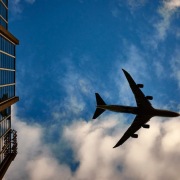The necessity to suffer a loss of time to receive compensation
In its recent rulings on cases C-474/22 and C-54/23, the European Court of Justice (ECJ) clarified that passengers are not entitled to a compensation payment in cases when their booked flight is delayed by more than 3 hours if they did not actually suffer a loss of time themselves, especially if they did not present themselves for check-in.
Traditionally, passengers whose flights arrive over three hours after the scheduled arrival time have been entitled to the same compensation passengers of cancelled flights receive. This principle was established in the landmark Sturgeon ruling (C-402/07 and C-432/07). However, the recent ECJ rulings demonstrate that there are still differences between flights that are cancelled and those that are significantly delayed.
The cases in question both involved flights from Düsseldorf (Germany) to Palma de Mallorca (Spain) where the operating carriers announced significant delays. In case C-474/22, upon learning of the delay, the passenger chose not to board the flight and later assigned his rights to flightright, which then sued the carrier for compensation. In case C-54/23, another passenger opted to book an alternative flight, resulting in an arrival delay of less than three hours.
The ECJ ruled that in both instances, the passengers are not eligible for compensation. This decision was based on Article 3 of Regulation 261/2004, which sets forth that the regulation only applies if passengers – except in cases of cancellations – present themselves for check-in in a timely manner. The passengers argued that this criterion should not apply in situations where the operating carrier had already announced that the flight would be delayed more than 3 hours, since such significant delays must be treated like cancellations.
However, the ECJ did not follow this reasoning ant stated that its landmark decision in the Sturgeon case was based on the concept that passengers enduring a delay of three hours or more suffer an irreversible loss of time and, consequently, a level of inconvenience comparable to that of passengers on cancelled flights. According to the ECJ’s rationale, compensation is a redress for this loss of time. Therefore, since the passengers in the recent cases either did not board their flights or managed to reduce their delay through alternative bookings, they did not experience the same loss of time and are, thus, not entitled to compensation.
However, it’s important to note that these passengers might still have other rights under Regulation 261/2004 or applicable law, such as ticket reimbursement or damages equivalent to the costs of the alternative flights they booked.
Don´t hesitate to contact our Aviation Team to learn more about passenger claims in Austria.


